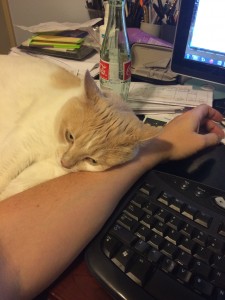Blog Archive
- Big Changes
- Cognation
- Politics
- Interviewing
- Getting Into Game Writing
- Gaping Plot Holes
Getting into Game Writing Part 5
The final post in this series!
You will face many obstacles to your writing
Stories of getting in.
Mine was broadly outlined in the article linked back in part 1, but I can give a bit more detail to that specific part of the story, in case it will help.
When I first decided to apply at BioWare as a writer, I knew nothing about scripting or source control, or anything technical. I was a storyboard artist, so I’d written plenty of dialogue. More importantly, I had spent a decade learning, using and teaching the fundamentals of storytelling – premise, character, structure, conflict, pacing, turns, all that good stuff. This helped me immensely as these are big subjects, and take a long time to learn.
Contrast that with scripting in the Neverwinter (NWN) toolset. It was intimidating, but in just a couple of weeks, I was able to teach myself enough to begin work on a complex mod. Now, I’m sure my scripting was hacky and terrible, and I’m not suggesting you can become accomplished at it in a few weeks. But it held together, and it did some pretty cool stuff. So I definitely recommend learning the technical side of things, but don’t forget your bread and butter: storytelling.
I also did my research – I found online tutorials for the toolset. I went to different forums, downloaded and played popular NWN mods. I carefully read BioWare’s advice on the mods. When I later worked at BioWare I was stunned by how many people ignored this very simple and straightforward guidance: Make the first NPC we meet memorable. That’s it! Pretty simple right? Yet many mods began with the player running up to an NPC and asking “Which way is the tavern?” and the NPC saying “Down the street.” Or some equivalent. Seriously, how hard is it to remember: Make the first NPC we meet memorable?
So that’s another key point: attention to detail. When someone says they want to see a certain thing in your application, do that thing. After I’d played/revised my mod many times, I sent it to BioWare. Eventually, I had a phone interview. A few weeks later I flew up and interviewed in person. It was a great experience, and BioWare soon thereafter offered me a job.
If you can swing it, starting your game writing career at BioWare is a great opportunity. They definitely have a certain way of doing things, and you may not always agree with those ways, but writing on even one BioWare game is a great bootcamp, a strong introduction to the craft. Their writing culture will give you a great foundation from which to build a career. And you may love it there and stay for multiple projects. Many people have done so. That said, there are many other great studios out there, and many other great experiences. Sometimes we learn the most by working on smaller projects, with smaller teams.
Other people that I know have gotten into game writing in a variety of ways, which I will very briefly list:
Through Quality Assurance (QA.) This is the most traditional route. A studio tends to hire a lot of QA analysts, and many of them are entry level. In the old model, you got in the door via QA, and then tried to jump to the position you wanted. That is starting to change as QA becomes a viable career path. But you can still make the jump. The thing to remember is this: when a writing job opens up, and you’ve waited 3 years in QA for that job, 12 other people are going to apply. But only one person can get it. It might be another analyst – or it might be someone from the outside who has experience writing on a variety of smaller games. So you take your chances.
One person majored in creative writing in college, interned at a small studio, got a job streaming for their PR team, and eventually moved into an editor position. But this editor position involves a fair amount of writing, because she is editing strings that have been translated.
Another art directed and designed a very famous game, and did the writing on it along the way, more by default, and went on to become a full time writer.
Several got their start writing mods for tabletop games.
One published a novel, and got hired to write a video game before the book came out. (But partially on the strength of having sold a book.)
One jumped from being a games journalist to writing on some smaller projects, to becoming a full-fledged game writer.
One graduated from college with a creative writing degree, spent a year applying for every possible gig, and finally landed one.
Several started as game designers, and evolved into writers on the job.
There are many more stories, but the point is clear – there’s a host of ways to get into the job, but you have to be ready, and the time has to be right.
Good luck!
That’s about all I can say! I hope this series of posts has been helpful. Please feel free to leave me some feedback.
-Brian
